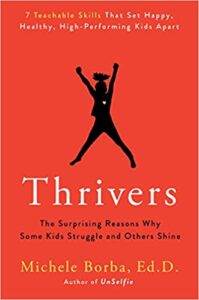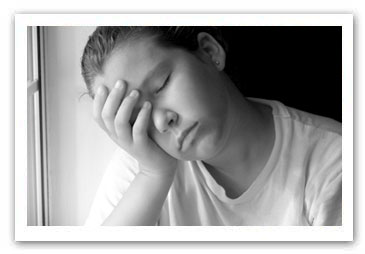Do you know the signs of stress in children and teens? Stress is mounting in our kids and it’s crucial that we recognize each child’s unique stress indicators to help them cope with an uncertain new world.
REALITY CHECK: Reports say that stress is mounting in our children, and that we parents are often unaware of just how stressed our kids are. Each child handles and shows stress differently. A big key to helping our children is learning to recognize their unique signs, which type of events or issues cause angst, and then teach healthy ways to manage stress.
Kids’ stress signs may differ from our stress indicators, and let’s face it: it’s a rare kid who says, “Hey, I’m really feeling stressed right now.” That’s why we must tune in and learn our children’s stress indicators. They are different for each child, so it may help to keep a record of when your child is stressed as well as what triggered it. Kids aren’t stressed 24/7, and that’s why the more we spot those signs, the sooner we can help.
Stress: A Top Kid Health Concern
The American Psychological Association (APA) released troubling survey results about our kids. The “Stress in America” surveyed 1206 young people ages eight to seventeen as well as 1568 adults conducted by Harris Interactive. The report, building on past research, revealed that stress is a top health concern for American teens between 9th and 12th grade. Among key study findings is this:
“Parents underestimate the extent of their kids’ stress.”
The big red flag for parents and educators to keep in mind: Our kids are much more stressed than we think. Here are just a few telling signs:
~ 31% of parents say their child has little or no stress vs. 9% of kids report little or no stress
~ Tweens (30 percent) and teens (42 percent) say they get headaches vs. 13 percent of parents
~ Tweens (39 percent) and teens (49 percent) cite difficulty sleeping vs. 13 percent of parents
~ Tweens (27 percent) and teens (39 percent) report eating too much or too little vs. 8 percent of parents
What’s more, tweens and teens were far more likely than their parents to report that their stress levels had increased in the last year. Nearly half of all teens (ages 13 to 17) said they were more worried than last year, while only 28% of their parents thought their adolescent’s stress had increased.
So what else is causing our kids to be so stressed? Here is what the kids say:
- 44% of young people say doing well in school was a source of stress
- 30% of young people worry about their family having enough money
- 29% of teens say they worry about getting into a good college or deciding what to do after high school
- 22% of tweens worry about getting along with friends
If the survey were done today I’m sure we’d see “severe weather” and “shootings” added to the list.
Psychologists also say that if teens don’t learn healthy ways to manage their stress now, it could have serious long-term health implications.
Research finds that between 8 and 10 percent of American children and teens are seriously troubled by stress symptoms. And stress is also hitting our children at younger ages.
And then came COVID and our children’s stress – as well as our own – went up. The U.S. Census Bureau recently reported that a third of Americans show signs of clinical depression and anxiety. Stress comes before anxiety.
If left untreated stress not only affects children’s friendships as well as school success, but also their physical and emotional well-being. Chronic stress symptoms break down children’s immune system as well as increasing their likelihood for depression.
Stress Signs in Kids and Teens
Each kid responds differently. The key is to identify your child’s physical behavioral or emotions signs before he is on overload. A clue is to look for behaviors that are not typical for your child “normal.” Every kid has a bad day, but are you seeing signs that last? Or they increase? Or they spill over to other areas of your child’s life. And is your own stress and worries increasing for your child. That’s always when it’s time to get help.
Here are a few of the most common stress signs. Is your child displaying any of these symptoms? What else? Could it be stress related?
Physical Stress Signs
- Headache, neck aches and backaches
- Nausea, diarrhea, constipation, stomachache, vomiting
- Shaky hands, sweaty palms, feeling shaky, lightheadedness
- Bedwetting
- Trouble sleeping, nightmares
- Change in appetite
- Stuttering
- Frequent colds, fatigue
Emotional or Behavior Stress Signs
- New or reoccurring fears; anxiety and worries
- Trouble concentrating; frequent daydreaming
- Restlessness or irritability
- Social withdrawal, unwilling to participate in school or family activities
- Moodiness; sulking; or inability to control emotions
- Nail biting; hair twirling; thumb-sucking; fist clenching; feet tapping
- Acting out, anger, aggressive behaviors such as tantrums, disorderly conduct
- Regression or baby-like behaviors
- Excessive whining or crying
- Clinging, more dependent, won’t let you out of his sight
What To Expect By Stages and Ages
Preschool
Kids as young as three years of age experience stress but it can go unnoticed because preschoolers can’t put their feelings into words. Pay closer attention your child’s stress symptoms.
Stressors include: new things; dogs, monsters, spiders, being sucked down a drain; abandonment of any kind: being away from home, separation from parents or loved ones, being kidnapped.
School Age
Stressors include: Performing in front of others (like a speech, recital or sporting event); tests, grades and school; bedwetting; being chosen last on any team, getting along with peers; real world dangers: fires, burglars, illness, storms; disappointing their parents.
Kids younger than ten are especially vulnerable to repeated stress.
Preteen and Teen
Stressors include: Grades, school and homework; taking on too many activities; negative thoughts and feelings about themselves; moving or changing schools; family pressure, arguing, financial problems, and tension; friends and peer acceptance; peer humiliation and pressure; gossip and teasing; worry about changing bodies, being different from others; letting their parents down.
If you suspect stress could be the cause of these symptoms then look for triggers that you can reduce. For instance: if you suspect scary nightly news could be a trigger then a simple solution is to turn it off!. If you child has no time to relax, then cut one of those activities. If the fear of flunking a math class is causing too much stress, then consider getting a tutor and calling for a teacher conference to create a remedy.
For More Help
But don’t stop there! The key message from the APA study is that our kids must also learn healthy ways to replace that stress.
 For ways to more ways to help children learn to cope, refer to my latest book, THRIVERS: The Surprising Reasons Why Some Kids Struggle and Others Shine and look to the chapter on Self-Control. You’ll find a complete section on research, more signs, stress triggers, and stress-reducers for preschoolers, school age children and tweens and teens. Choose the one strategy that you think will work best for your child. Whatever stress reducer you adopt, continue practicing the strategy together until your child can use the stress-reducer without you. At that point you’ll know your son or daughter has learned a life-long habit.
For ways to more ways to help children learn to cope, refer to my latest book, THRIVERS: The Surprising Reasons Why Some Kids Struggle and Others Shine and look to the chapter on Self-Control. You’ll find a complete section on research, more signs, stress triggers, and stress-reducers for preschoolers, school age children and tweens and teens. Choose the one strategy that you think will work best for your child. Whatever stress reducer you adopt, continue practicing the strategy together until your child can use the stress-reducer without you. At that point you’ll know your son or daughter has learned a life-long habit.
Best!
Michele
Dr. Michele Borba, Parenting Expert
I am an educational psychologist, parenting expert, TODAY show contributor and author of 22 books including The Big Book of Parenting Solutions: 101 Answers to Your Everyday Challenges and Wildest Worries.
You can also refer to my blog, Dr. Borba’s Reality Check for ongoing parenting solutions and late-breaking news and research about child development. My book, UNSELFIE: Why Empathetic Kids Succeed in Our All-About-Me World addresses the best ways we can activate our children’s hearts.


